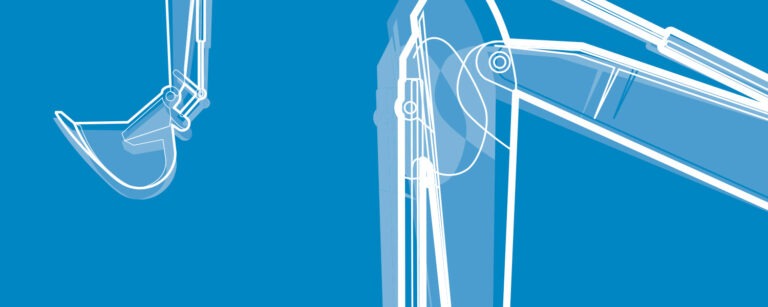
Who’s digging at this time of night...?
19. February 2024

30. November 2022
Even early aviation pioneers needed their own “Start Unit” in the form of a brave mechanic, who got engines running by vigorously yanking on propellers before scurrying off to safety Much to the delight of ground personnel everywhere, this task is nowadays accomplished by the Mobile Start Unit (MSU) from Rheinmetall.

As a general rule, a jet engine cannot be started from rest. Only when running at about 20 % of its maximum rotational speed is it possible to draw fuel and start the continuous combustion process. Modern aircraft are normally equipped with an Auxiliary Power Unit (APU), which boosts the main engines up to the necessary rotational speed while simultaneously supplying energy for the on-board air conditioning system.
Air Start Units (ASUs), also known as ground power units, represent an alternative to starting engines via APUs. They are, for example, necessary when the APU is defective or on-board fuel must be conserved. Since as far back as 1996, Rheinmetall has been manufacturing an MSU product range with a number of ground power units for both civil and military needs. Durability is outstanding: many systems from the first years of series production are still in use today. They were developed for ambient temperatures of –32 °C to +52 °C and have also proven themselves under the harshest climatic conditions.
The MSU is distinguished by its compact design, low weight, high performance and low operating costs. In the MSU design, the compressor forms part of the turbine. This means fewer wearing parts, resulting in especially high reliability and low maintenance costs. Only two small inspections per year are necessary, in which neither the oil nor the filter must be changed. Thanks to the self-diagnostic function and continual digital monitoring, the MSU reports any occurring errors, thereby preventing damage at an early stage.

The Rheinmetall MSU product range provides a modular system offering sufficient flexibility for every application. It can be deployed as a mobile unit, on a trailer or vehicle or as a stationary system with variable tank size. The MSU 200 already delivers enough performance for about 80 % of all aircraft types, from Airbus, Boeing and McDonnell-Douglas to Russian manufacturers like Ilyushin or Tupolev. The MSU 400 meets all requirements for very large machines, even for the Airbus A380 or the Boeing 777. Both the MSU 200 and the MSU 400 supply enough air pressure to start the engine and power the on-board air conditioning system. Changeover from one function to the other occurs automatically.
One of the most important advantages of the MSU lies in the low Total Cost of Ownership (TCO). Thanks to its short running time of about six minutes per air start, the turbine saves costs and goes easy on the environment. Only about 3 gallons (approx. 12 liters) of fuel are consumed per air start. This is very little in comparison both to other ground power units and on-board APUs – which of course also benefits the environment. This aspect is becoming ever more important, especially because reducing ground service equipment emissions is a core issue for many airlines and airport operators – as they labor to fulfill the ever-stricter legal emission requirements worldwide.
(Article origins from 13. September 2018)
Click here to receive push notifications. By giving your consent, you will receive constantly information about new articles on the Dimensions website. This notification service can be canceled at any time in the browser settings or settings of your mobile device. Your consent also expressly extends to the transfer of data to third countries. Further information can be found in our data protection information under section 5.